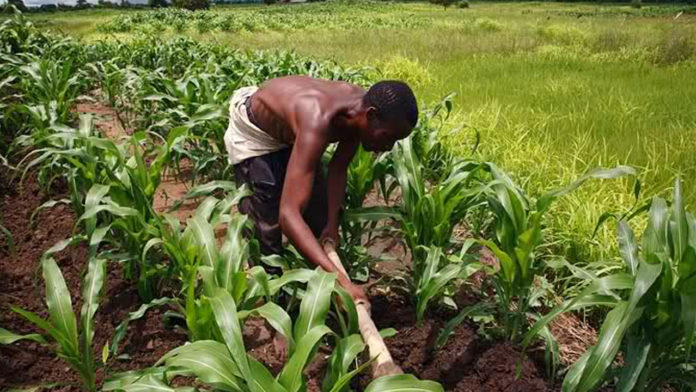The 2022 National Agricultural Sample Census Report (NASC) has been released by the Federal Ministry of Agriculture and Food Security (FMAFS) in association with the National Bureau of Statistics (NBS), World Bank, and other significant players.
This report is the first National Agricultural Sample Census since 1993, according to the National Bureau of Statistics on X.
In addition to promoting economic growth, the report seeks to improve food and nutrition security by offering solid statistics on agricultural activities.
Senator Dr. Aliyu Sabi Abdullahi, the minister of state for agriculture and food security, emphasized the value of the census data during his speech at the inauguration event in Abuja.
He underlined that the data would assist evidence-based policy and decision-making in some economic sectors, supporting the farm sector’s renewed hope agenda.
The significance of the NASC report
Senator Abdullahi mentioned that the NASC would provide the ministry with essential data to track the supply of agricultural food and pinpoint chances for sector development.
“What the government can now measure, it can manage,” he said, summarising the most important aspect of the data.
Senator Abubakar Atiku Bagudu, Minister of Budget and Economic Planning, praised FMAFS and its development partners for their assistance in preparing the report.
He said that the results of the census show what can be accomplished when stakeholders work together closely.
Dominque Koffy Kouacou, the Food and Agriculture Organization’s (FAO) representative in Nigeria and ECOWAS, stressed that the study will offer crucial information for decision-makers, supporting them in organizing, overseeing, and assessing policies and plans.
“With over 65% of the population directly or indirectly dependent on the agriculture sector for their daily sustenance, the NASC results offer invaluable insights into the very foundation of our agricultural sector,” said Prince Adeyemi Adeniran, Statistician-General of the Federation and Chief Executive Officer of the NBS.
He continued by saying that among other things, the report offers a thorough picture of land use patterns, crop production techniques, livestock and fisheries operations, and the use of agricultural inputs.
Findings
Nigeria has roughly 40.2 million agricultural households, according to the census.
Of them, 91% raised crops, 35% engaged solely in agricultural production, and 48% said they raised a variety of animals.
Furthermore, just 5% of households engaged in fishing, but 16% reared roughly 58 million cattle, 41.2% about 124 million goats, and 42.5% poultry, primarily hens.
With 48% of agricultural households involved in crop production, Lagos State had the lowest percentage, while Ebonyi State had the highest at 99.5%.
With 84.2% of agricultural households engaged in animal production, Jigawa State led the way, followed by Bauchi State with 79.7%.
With 65.2% of agricultural households, Benue State had the highest percentage of poultry-owning households, closely followed by Ebonyi State with 63.3%.



